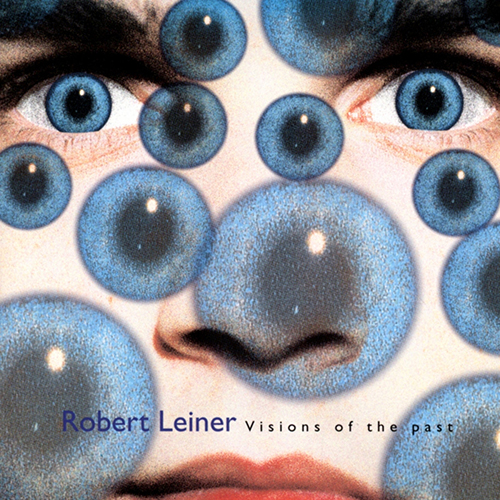Favourites:
July 2021
by Liero Plantir
16/08/2021
![]()
16/08/2021

July was a quiet month in terms of consumption so I’m going to pick out my favourite three things from each category.
These are my three favourite albums I listened to in July. I wrote some initial thoughts on each one if you’re interested.
Mixes
Do/While 30 - Wonja & DJML
The Do/While show is one of my favourites out there, it never fails to blow my mind. The selection is always just levels above anything else I’ve listened to. Wonja and DJML are just so consistently good and are some of my favourite selectors out there. There are so many great tracks I found from this mix, including one by Tol, which I did a short album review of. Couldn’t recommend anything more highly, so much love!!
The Do/While show is one of my favourites out there, it never fails to blow my mind. The selection is always just levels above anything else I’ve listened to. Wonja and DJML are just so consistently good and are some of my favourite selectors out there. There are so many great tracks I found from this mix, including one by Tol, which I did a short album review of. Couldn’t recommend anything more highly, so much love!!
fabric presents Overmono
I honestly can’t tell you how many times I’ve listened to this mix. I don’t have the words to describe how much I love Overmono, they just never miss! This mix is just incredible, down to literally every single track. I don’t even want to describe it, you just have to listen for yourself.
I honestly can’t tell you how many times I’ve listened to this mix. I don’t have the words to describe how much I love Overmono, they just never miss! This mix is just incredible, down to literally every single track. I don’t even want to describe it, you just have to listen for yourself.
DJ-Kicks: Kruder and Dorfmeister
This is such an incredible DJ-Kicks, I don’t know how I haven’t come across it before. A throwback to 1996, it’s such a timeless, eclectic selection, taking you on a journey through the depths of trip-hop, dub, ambient and drum and bass. Perfect for those Sunday afternoons, as it transports you into a world of wonder and bliss.
This is such an incredible DJ-Kicks, I don’t know how I haven’t come across it before. A throwback to 1996, it’s such a timeless, eclectic selection, taking you on a journey through the depths of trip-hop, dub, ambient and drum and bass. Perfect for those Sunday afternoons, as it transports you into a world of wonder and bliss.
Articles
Articles
1.
you have what you want
I really love this short piece by Ava. She basically says that you have what you want and you want what you choose. I’m not sure to what extent I agree but it definitely resonates and is an interesting perspective.
you have what you want
I really love this short piece by Ava. She basically says that you have what you want and you want what you choose. I’m not sure to what extent I agree but it definitely resonates and is an interesting perspective.
‘Imagine believing this: if you actually didn’t want something anymore, you would get rid of it. There are, of course, many things we can’t change: health problems, personal tragedies, sudden global pandemics. Those make it more imperative that we take accountability for what we can change. Most people I know could leave their cushy job, they’re just not comfortable with feeling uncertain. Both them and their partner would survive the end of the relationship, but they want to stay in it. They could have different friends or call their family more or make adventurous decisions—they just don’t want to. And it’s okay to not want to. Everything begins when you admit to yourself what you actually want.’
2.
Michael, Dwight and Andy: the Three Aesthetics of the Creative Class
In one of my previous favourite posts I spoke about an article called The Michael Scott Theory of Social Class, which if you’ve not read I would highly recommend. Well, this article is a continuation of that post, focusing on the educated gentry class, represented in The Office by Michael, Dwight and Andy.
The Creative Class is part of the educated gentry with each of its substrata being represented by Michael, Dwight and Andy. They define the Middle Class, Upper Proles and the Upper Middles, respectively. They each have different characteristics that describe their position and Danco identifies the origins of this class and how they operate in society.
Michael represents the Middle Class who are defined by their ‘anxious, yearning to be taken seriously’. The primary differentiating characteristic is their earnestness and insecurity, mostly from status panic.
Dwight represents the Upper Proles. These are the adults who ‘wear Supreme and their dogs have Gucci collars’. They have none of the status panic or insecurity of the middle class and are more straightforwardly proud, enjoying things very literally. Their main frustration is that those above them don’t recognise their achievements as legitimate. However, out of the three they’re the only ones with self-confidence.
Finally, Andy represents the Upper Middles. This substrata are not necessarily wealthy themselves but they have first degree connections to real capital, power and fame.
There’s obviously a lot more detail in the article but it’s such a fascinating perspective, especially given that it’s directly related to The Office characters. They’re always fun reads and an interesting look at society. Danco also hints at a new group of people, Very Online People who are disrupting all these classes of people, so I’d definitely recommend it if you’ve ever watched The Office.
Michael, Dwight and Andy: the Three Aesthetics of the Creative Class
In one of my previous favourite posts I spoke about an article called The Michael Scott Theory of Social Class, which if you’ve not read I would highly recommend. Well, this article is a continuation of that post, focusing on the educated gentry class, represented in The Office by Michael, Dwight and Andy.
The Creative Class is part of the educated gentry with each of its substrata being represented by Michael, Dwight and Andy. They define the Middle Class, Upper Proles and the Upper Middles, respectively. They each have different characteristics that describe their position and Danco identifies the origins of this class and how they operate in society.
Michael represents the Middle Class who are defined by their ‘anxious, yearning to be taken seriously’. The primary differentiating characteristic is their earnestness and insecurity, mostly from status panic.
‘Michael's best middle-class characteristic is that he's snobby, in an endearing sort of way. He is always worried, in the back of his mind, that his authentic tastes and preferences might be inadequate, or that his office parties might be uninspiring. Yet at the same time, he's inclusive: all he really wants is for everyone to laugh together.’
Dwight represents the Upper Proles. These are the adults who ‘wear Supreme and their dogs have Gucci collars’. They have none of the status panic or insecurity of the middle class and are more straightforwardly proud, enjoying things very literally. Their main frustration is that those above them don’t recognise their achievements as legitimate. However, out of the three they’re the only ones with self-confidence.
Finally, Andy represents the Upper Middles. This substrata are not necessarily wealthy themselves but they have first degree connections to real capital, power and fame.
‘Many of them work in the same creative class jobs, across the same open floor plan desks, as their Middle and Upper Prole colleagues - but there's a good chance that they've flown private before, or that they have a genuinely powerful person's real contact info in their phone, for some random reason.’
There’s obviously a lot more detail in the article but it’s such a fascinating perspective, especially given that it’s directly related to The Office characters. They’re always fun reads and an interesting look at society. Danco also hints at a new group of people, Very Online People who are disrupting all these classes of people, so I’d definitely recommend it if you’ve ever watched The Office.
3.
The Inner Ring of the Internet
This piece is a sort of ode to C.S. Lewis’ lecture he gave to King’s College students in 1944 in which he spoke about the term the Inner Ring. He described it as an ever-shifting circle of insiders within any group and as outsiders we want to be inside the ring.
One of the defining characteristics of the Inner Ring is that it is subtle and it’s never explicitly clear who is inside. Montag compares this to the way social media and popularity/success on the Internet works.
‘Across the industry, the incentives of creative work are changing. Long confined to the halls of Ivy League universities, Hollywood agencies, and Manhattan publishing houses, creative work is now available to anyone with a laptop and WiFi. The gatekeepers have been disrupted. Attention, rather than clout or connections, is what matters now.’
The moral of the piece is ‘do you’ and ignore any desire to be in the Inner Ring, but it’s also an interesting look into the way creative work has been changed by the Internet and ways to detach from that.
The Inner Ring of the Internet
This piece is a sort of ode to C.S. Lewis’ lecture he gave to King’s College students in 1944 in which he spoke about the term the Inner Ring. He described it as an ever-shifting circle of insiders within any group and as outsiders we want to be inside the ring.
One of the defining characteristics of the Inner Ring is that it is subtle and it’s never explicitly clear who is inside. Montag compares this to the way social media and popularity/success on the Internet works.
‘Across the industry, the incentives of creative work are changing. Long confined to the halls of Ivy League universities, Hollywood agencies, and Manhattan publishing houses, creative work is now available to anyone with a laptop and WiFi. The gatekeepers have been disrupted. Attention, rather than clout or connections, is what matters now.’
The moral of the piece is ‘do you’ and ignore any desire to be in the Inner Ring, but it’s also an interesting look into the way creative work has been changed by the Internet and ways to detach from that.
‘This is the price of chasing the Inner Ring. The desire to be likeable—to win entrance into the upper echelons of the attention marketplace, to be noteworthy and taken note of, to make a hit movie or write a best-selling book—provokes the same reaction from anyone who harbors it: inescapable mediocrity.’
‘Just work. That’s it. Focus on what stirs you up inside, what is beautiful and true. Work on making something good—not something that is liked. Take responsibility. The work will lead you home.’





